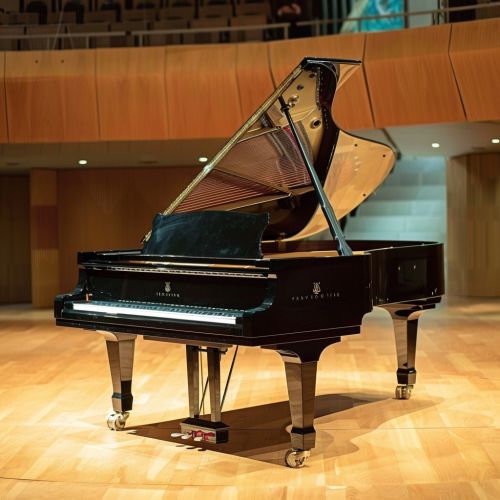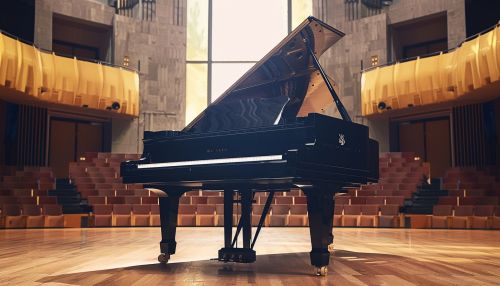Karlheinz Stockhausen
Early Life and Education
Karlheinz Stockhausen was born on 22nd August 1928 in Mödrath, a small village near Cologne, Germany. He was the eldest of three sons. His mother was a member of a wealthy family, while his father was a schoolteacher. Stockhausen's early life was marked by the Second World War, during which his mother was institutionalized and later died, and his father was killed in action.
Stockhausen's interest in music began at a young age. He learned to play the piano and developed a keen interest in classical music. His early musical influences included the works of Beethoven, Bach, and Mozart.
In 1947, Stockhausen enrolled at the Hochschule für Musik Köln (Cologne Conservatory of Music) where he studied piano, music education, and Germanic studies. He also attended the University of Cologne, where he studied philosophy and German literature.


Career and Works
Stockhausen's career as a composer began in the early 1950s. His early works, such as "Kreuzspiel" and "Kontra-Punkte", were influenced by the serialist techniques of Schoenberg and Webern. However, Stockhausen soon began to develop his own unique compositional style, which was characterized by its exploration of electronic music, spatialization, and controlled chance.
In the mid-1950s, Stockhausen began working at the Westdeutscher Rundfunk (WDR) electronic music studio in Cologne. Here, he composed notable works such as "Gesang der Jünglinge" and "Kontakte", which are considered pioneering works in the field of electronic music.
In the 1960s and 1970s, Stockhausen composed a series of works known as the "Licht" cycle. This cycle, which consists of seven operas, each representing a day of the week, is considered one of Stockhausen's most ambitious and significant works.
In addition to his work as a composer, Stockhausen was also a prominent music educator. He taught at the Darmstadt International Summer Courses for New Music and the Cologne Courses for New Music, where he influenced a generation of composers and musicians.
Legacy and Influence
Stockhausen's contributions to music were significant and far-reaching. His exploration of electronic music and spatialization techniques influenced a wide range of musicians and composers, from avant-garde classical composers to electronic music artists.
Stockhausen's work has also been influential in the field of music education. His teaching methods, which emphasized creativity and experimentation, have been adopted by music educators around the world.
Despite his significant contributions to music, Stockhausen's work has also been the subject of controversy and criticism. Some critics have described his music as overly complex and inaccessible, while others have praised its innovation and originality.
